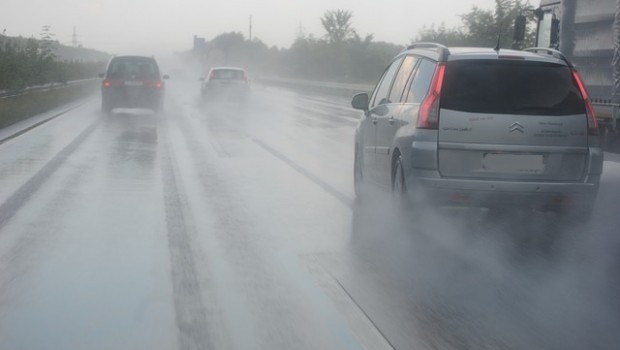The weather of the UAE has deteriorated considerably during the last few weeks as heavy rains, thunderstorms and foggy conditions have been observed across the country. The National Centre of Meteorology (NCM) has issued several warnings for extreme weather during the last few days and advised motorists to drive carefully.
The ongoing inclement weather can pose serious challenges for motorists that have old vehicles. The vehicles that are older than four or five years have already undergone excessive wear, which makes them vulnerable to a sudden breakdown in challenging weather conditions. It is advised that motorists should upgrade their old vehicles to new ones at the right time. In this way, they will be able to get a good resale price and save themselves from increased maintenance costs of the old vehicles.
The reliability of old and aging vehicles becomes dependent on their regular maintenance and the lack of regular maintenance can increase the risk of a sudden breakdown in extreme weather conditions.
Here are the five ways extreme weather during the winter season can affect your vehicle in the UAE.
Tyres of Old Cars Become a Safety Risk
Tyre safety must never be overlooked by car owners, particularly in extreme weather conditions. During the winter season, different types of extreme weather conditions can be observed that can cause critical tyre damage. If the tyres of an old vehicle have not been maintained well over a period, it can cause a sudden blowout on wet roads induced by heavy rain or dense fog.
Heavy rain can pose the biggest threat to old and weak tyres as the tyres might not be able to drive a vehicle through waterlogged roads. The tyre tread should be in good condition while the air pressure must be checked regularly to avoid dangerous road situations in cold weather.
Tyre pressure can fluctuate drastically during the winter season, particularly when you are driving a vehicle for a long duration. Without regular inspection, the tyres can become vulnerable to a sudden blowout, which can have dangerous consequences in heavy traffic.
Battery Problems
Cold temperature and other extreme weather conditions during the winter season can have a toll on the battery of a vehicle. The cold weather can slow down the chemical processes inside the battery, which can reduce the battery’s charging capabilities. These problems can be frequently observed in batteries that are old or poorly maintained. A detailed checkup of the vehicle ahead of the winter season and a weekly inspection can help avoid the battery problems during the winter season.
Movement of Fluids Reduces
The fluids in a vehicle lubricate the engine and other mechanical parts for longevity and consistency in performance. These fluids need to move freely to perform their functions, but their movement reduces significantly in cold weather conditions. Most of the fluids inside a vehicle have anti-freezing additives, however, the cold temperature can cause thickening of engine oil and transmission fluid. If it remains undetected, it can cause serious damage to the vital mechanical parts of a vehicle. It is important for motorists to keep checking their vehicle’s fluids regularly to save it from a sudden breakdown caused by freezing of fluids.
Wiper Blades Can be Damaged
It is a common practice among several drivers to use wiper blades without clearing the windshield. The use of wiper blades increases significantly during the winter season, especially if the windshield is not cleared before the use of wiper blades. The dense fog, low temperature and heavy rains can accumulate moisture on the windshield, which can often be difficult to be removed by the wiper blades. The overuse of wiper blades can break their rubber coating, which can cause a serious damage to the windshield.
Fuel Efficiency Can Drop During the Winter Season
Several factors can cause the fuel efficiency of a vehicle to drop during the winter season. According to an estimate, a drop in temperature from 24 Degree Celsius to 7 Degree Celsius can increase the fuel consumption in urban commutes by 12% to 28%. The fuel efficiency decreases during the winter season mainly due to the increased aerodynamic resistance.
The cold air is 11% denser than the warm air, which is why the air resistance increases during the winter season. The only way motorists can get rid of this problem is by switching from their combustion engine vehicles to electric vehicles that don’t need conventional fuel at all. Keeping a check on regular maintenance can also help sustain the fuel efficiency of a vehicle even in extremely cold weather conditions.
Bottom-line
The regular maintenance of an old vehicle cannot be ignored to save it from potential hazards caused by extreme weather conditions. All the aforementioned problems tend to be more prevalent in old vehicles as these vehicles have old and exhausted mechanical parts. Without regular maintenance, a vehicle can suffer serious damage in extreme weather conditions, which can also put the safety of its occupants at a risk.
Car owner must understand that the depreciation rate of mechanical parts and maintenance cost of the vehicles increases significantly with each passing year. A car loses most of its value during the first three to five years as mechanical parts continue to deteriorate within this period. The only way car owners can make life easier for themselves is by upgrading their old vehicles to new ones. This will help them in avoiding increased maintenance costs and they will also be able to get a good resale price by selling their used vehicles at the right time.
If you are looking to sell your used car to buy a new one with advanced safety features and improved performance, then don’t forget that with us, you can sell any used car in just 30 minutes while all the post-sale paperwork is handled by SellAnyCar.com’s team.



